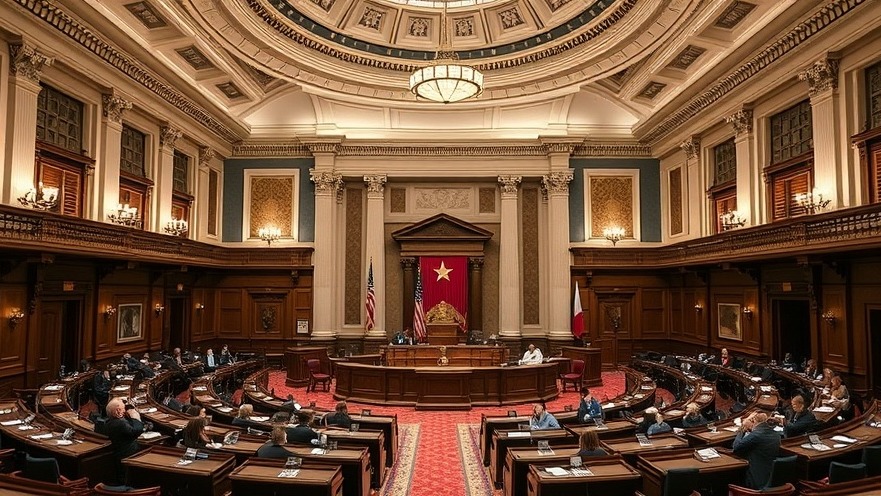
The Future of Texas Dream Act: A Turning Point for Undocumented Students
A district judge in North Texas recently rendered a significant ruling in a case impacting the Texas Dream Act, which has long facilitated in-state tuition rates for undocumented students. His decision to deny civil rights groups and the Austin Community College board’s request to intervene in the case has far-reaching implications for thousands of students across the state. By rejecting the arguments presented by those advocates, Judge Reed O’Connor has compounded the uncertainty and anxiety surrounding this contentious legal issue.
Legal Landscape of the Texas Dream Act
For over two decades, the Texas Dream Act has been a beacon of hope for undocumented students, allowing them to pay in-state tuition rates if they met specific eligibility criteria. These requirements included residing in Texas for three years and signing an affidavit indicating their intent to pursue citizenship. However, after a lawsuit initiated by the United States government in June, the protections offered by the Dream Act were swiftly called into question.
In June, the United States sued Texas over the law, resulting in an injunction that halted the provision of in-state tuition to those without legal status. Following a rapid decline in Texas’s willingness to contest the lawsuit, Judge O’Connor’s order intervened, sparking discontent among advocacy groups looking to uphold the rights of undocumented students.
The Immediate Consequences: Rising Tuition Costs
As a direct outcome of the ruling, the costs of education for undocumented students in Texas could quadruple by the fall semester, potentially making it impossible for many to complete their education. Groups arguing against the injunction have expressed concerns about the imminent harm these students will face, emphasizing how the growth in tuition could severely impede their paths to higher education.
Kassandra Gonzalez, an attorney with the Texas Civil Rights Project, articulated their frustration with the ruling’s emphasis on “legal futility.” Advocates highlight that the interests of undocumented students are not adequately represented in these discussions, arguing that the consequences of denying their right to intervene could be devastating.
Reactions and Next Steps
The Austin Community College Board of Trustees has joined forces with organizations like the American Civil Liberties Union of Texas and the Texas Civil Rights Project to appeal this ruling to the Fifth Circuit Court. An essential aspect of their argument focuses on whether these interested parties are adequately represented and if the law allows for them to intervene based on the potential detrimental effects on their communities.
The upcoming proceedings in the Fifth Circuit will be pivotal in determining if these organizations will have the opportunity to contest the ruling that affects almost 30,000 students annually who rely on the protections afforded by the Dream Act.
A Broader Context: Immigrants and Education in Texas
Understanding the legal and emotional significance of the Texas Dream Act requires recognizing the broader context of immigration policy in the United States. Enforcement actions have raised alarms about anti-immigrant sentiments, complicating the educational journeys of many students year after year. By blocking access to affordable education, systems could further marginalize a population already struggling with the implications of their status.
This situation is further complicated by growing debates nationwide regarding the treatment of undocumented students and their access to education. Similar challenges are facing other states across the country, making the implications of this ruling not just a local issue but part of a much larger national conversation.
What Lies Ahead: Implications for Undocumented Students
The future remains uncertain for the Texas Dream Act and those who depend on its provisions. With education costs looming large, students like Karen Reyes, an undocumented teacher and DACA recipient, may find their dreams stifled and their aspirations curtailed by these legal barriers. The upcoming court hearings in the Fifth Circuit will be critical in determining whether these students can continue pursuing their education without financial burdens crippling their ambitions.
Calls For Action: The Importance of Advocacy
The importance of advocacy cannot be overstated in this turbulent time. As stakeholders in the education sector rally to challenge and advocate for the rights of undocumented students, the broader community must stay aware and engaged. It’s time for voices to unite in support of those impacted by these changes, as public awareness of the challenges facing these students can lead to real, actionable differences.
Because when education is made accessible to all students, everyone benefits. Texas has always prided itself on its diversity and inclusiveness, and standing up for the Texas Dream Act is essential in ensuring that this remains true. Support for advocacy and legal efforts is vital to protecting the rights of countless students who wish to contribute to society and achieve their academic dreams.
As discussions surrounding the Texas Dream Act and education reform continue, it is crucial to remain informed about developments and their implications for the community. Follow the updates closely; your voice matters in this critical junction in Texas education.
 Add Element
Add Element  Add Row
Add Row 



Write A Comment